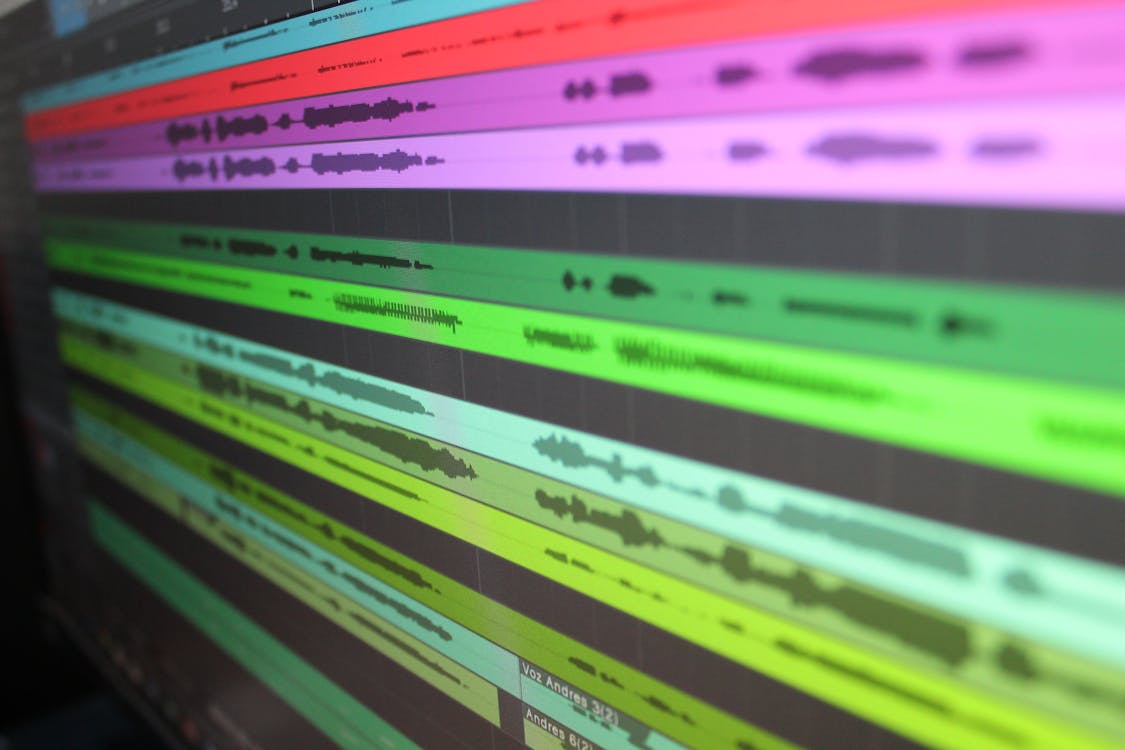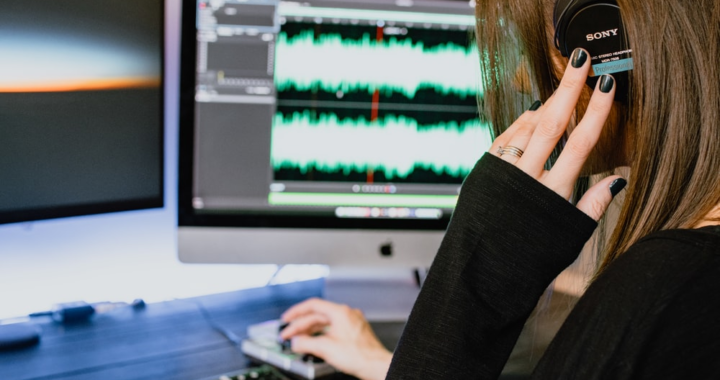In a world where communication increasingly occurs through digital mediums, the significance of audio evidence in criminal investigations cannot be overstated. Statistics reveal that over 90% of criminal cases now involve some form of digital evidence, with audio playing a crucial role in many of these investigations.
Imagine a scenario where a 911 call captures the critical moments of an unfolding crime or a ransom note left as a voicemail provides the only clue to solving a kidnapping case. These scenarios highlight the urgency and necessity for robust audio forensic services to decode the truth hidden within sound waves.
At Eclipse Forensics, we understand the critical role audio plays in solving complex cases. Our audio forensic services and digital forensic consultancy are designed to meet the growing demand for accurate and reliable audio analysis.
With a team of skilled digital forensic experts, we provide comprehensive solutions to law enforcement agencies, legal professionals, and private clients, ensuring that every piece of audio evidence is meticulously examined and interpreted.
In this blog, we’ll explore how audio forensics aids diverse investigations, from analyzing 911 calls to interpreting ransom notes, shedding light on the various techniques and technologies involved.
The Role of Audio Forensics in Modern Investigations
Audio forensics is a specialized field within forensic science that involves the examination, analysis, and interpretation of audio recordings. This discipline has become increasingly vital in modern investigations due to the proliferation of digital communication devices. Let’s delve into some of the key areas where audio forensics plays a pivotal role.
1. Analyzing 911 Calls
911 calls are often the first point of contact during emergencies, capturing real-time audio evidence of crimes, accidents, and other critical incidents. Analyzing these calls can provide invaluable insights into the events as they unfold.
- Voice Identification: Audio forensicscan help identify the caller’s voice, distinguishing between suspects, victims, and witnesses.
- Background Noise Analysis: By isolating and examining background noises, forensic experts can glean information about the environment and context of the call.
- Emotional Tone Analysis: Analyzing the emotional tone of the caller can help determine the urgency and seriousness of the situation.
2. Interpreting Ransom Notes
Ransom notes left as audio recordings present unique challenges and opportunities for forensic experts. These recordings can be meticulously analyzed to extract crucial information.
- Speaker Profiling: By examining the speaker’s voice, experts can create a profile that includes age, gender, accent, and other identifying characteristics.
- Authenticity Verification: Audio forensicscan determine if the recording is genuine or if it has been tampered with or manipulated.
- Linguistic Analysis: The choice of words, language patterns, and speech habits can provide clues about the speaker’s background and intent.
3. Enhancing Audio Quality

Often, the audio evidence collected is of poor quality, making it difficult to interpret. Audio forensics involves various techniques to enhance the clarity and intelligibility of recordings.
- Noise Reduction: Techniques such as spectral subtraction and adaptive filtering help reduce background noise and enhance the primary audio signal.
- Echo and Reverberation Removal: Removing echoes and reverberations can significantly improve the clarity of the recording.
- Volume Equalization: Adjusting the volume levels ensures that all parts of the recording are audible and clear.
4. Authenticating Audio Recordings
In legal and criminal investigations, the authenticity of audio recordings is paramount. Audio forensics provides methods to verify the integrity of recordings.
- Digital Signature Analysis: Examining the digital signatures and metadata of audio files helps determine if they have been altered.
- Tampering Detection: Identifying signs of editing, such as splices, cuts, or added sounds, ensures the recording’s authenticity.
- File Format Analysis: Analyzing the file format and its properties can reveal if the recording has been converted or manipulated.
Techniques and Technologies in Audio Forensics
Audio forensics employs a variety of advanced techniques and technologies to analyze and interpret audio evidence. These tools are essential for extracting valuable information from recordings and ensuring their reliability in investigations.
1. Spectrogram Analysis
A spectrogram visually represents the frequency spectrum of an audio signal over time. This tool is instrumental in identifying specific sounds, patterns, and anomalies within a recording.
- Frequency Analysis: By examining the frequency components, experts can identify specific sounds, such as gunshots, alarms, or spoken words.
- Pattern Recognition: Spectrograms help recognize repeating patterns or unique sound signatures that may be crucial to an investigation.
2. Voice Biometrics
Voice biometrics involves analyzing the unique characteristics of an individual’s voice to establish identity. This technology is widely used in criminal investigations and security applications.
- Speaker Identification: By comparing voice samples, experts can identify or verify the identity of speakers in audio recordings.
- Voiceprint Analysis: Creating a voiceprint, a unique digital representation of a voice, helps match and authenticate speakers.
3. Audio Enhancement Software
Advanced audio enhancement software is used to improve the quality and intelligibility of recordings. These tools employ various algorithms and techniques to process and enhance audio signals.
- Equalization: Adjusting the balance between frequency components enhances the clarity of speech and other important sounds.
- Noise Suppression: Removing unwanted background noise improves the overall quality of the recording.
- Time-Frequency Analysis: Analyzing the time and frequency domains helps isolate and enhance specific audio elements.
4. Forensic Audio Authentication

Ensuring the authenticity of audio recordings is crucial in legal proceedings. Forensic audio authentication involves a thorough examination of the recording to detect any signs of tampering or manipulation.
- Metadata Analysis: Examining metadata, such as timestamps and file properties, helps verify the recording’s integrity.
- Signal Analysis: Analyzing the audio signal for inconsistencies, such as abrupt changes or anomalies, indicates potential tampering.
- Compression Artifacts: Identifying artifacts resulting from compression algorithms can reveal if the recording has been edited or manipulated.
Applications of Audio Forensics in Diverse Investigations
The applications of audio forensics extend across a wide range of investigations, from criminal cases to civil disputes. Here are some notable examples:
1. Criminal Investigations
Audio forensics plays a vital role in solving crimes by analyzing recordings from various sources.
- Interrogations and Confessions: Analyzing recorded interrogations and confessions helps verify the authenticity and voluntariness of statements.
- Covert Recordings: Covertly recorded conversations can provide crucial evidence in criminal investigations, with audio forensicsensuring their reliability.
- Witness Testimonies: Enhancing and analyzing witness testimonies aids in corroborating their statements with other evidence.
2. Legal Disputes
In legal disputes, audio recordings can serve as critical evidence, with audio forensics ensuring their admissibility in court.
- Contract Disputes: Analyzing recorded conversations helps resolve disputes over verbal agreements and contract terms.
- Harassment Cases: Enhancing and authenticating audio evidence in harassment cases provides support for the victim’s claims.
- Custody Battles: Audio recordings can be pivotal in custody disputes, with forensic analysis ensuring their accuracy and authenticity.
3. Corporate Investigations
Corporate investigations often involve analyzing audio recordings to uncover fraud, misconduct, or other violations.
- Internal Communications: Analyzing recorded internal communications helps identify fraudulent activities or policy violations.
- Board Meetings: Examining recordings of board meetings can reveal crucial information about corporate decisions and actions.
- Whistleblower Evidence: Authenticating and enhancing whistleblower recordings ensures their reliability in exposing corporate misconduct.
4. Personal Cases
Audio forensics also aids in personal cases, providing crucial evidence in various situations.
- Divorce Proceedings: Analyzing audio recordings in divorce cases can provide evidence of infidelity or other grounds for divorce.
- Estate Disputes: Audio recordings of wills or verbal agreements can be authenticated and analyzed to resolve estate disputes.
- Threats and Stalking: Enhancing and analyzing recordings of threats or stalking incidents helps identify and prosecute offenders.
Leverage Our Expertise in Audio Forensics Today!
Audio forensics is an indispensable tool in modern investigations, offering a wide range of applications across criminal, legal, corporate, and personal cases. At Eclipse Forensics, we provide expert audio forensic services and digital forensic consultancy to ensure that every piece of audio evidence is accurately analyzed and interpreted.
Our digital forensic experts employ advanced techniques and technologies to enhance, authenticate, and analyze audio recordings, providing reliable and admissible evidence for various investigations.
By leveraging our expertise in audio forensics, we help uncover the truth hidden within sound waves, aiding law enforcement agencies, legal professionals, and private clients in their pursuit of justice.
Whether it’s analyzing a 911 call, interpreting a ransom note, or enhancing the quality of a critical recording, Eclipse Forensics is your trusted partner in audio forensic services.
If you need expert audio analysis or have questions about how our services can assist your investigation, contact Eclipse Forensics today.
Our team of skilled digital forensic consultants is here to provide comprehensive solutions, ensuring that your audio evidence is handled with the utmost precision and care. Together, we can uncover the truth and bring clarity to your case.


